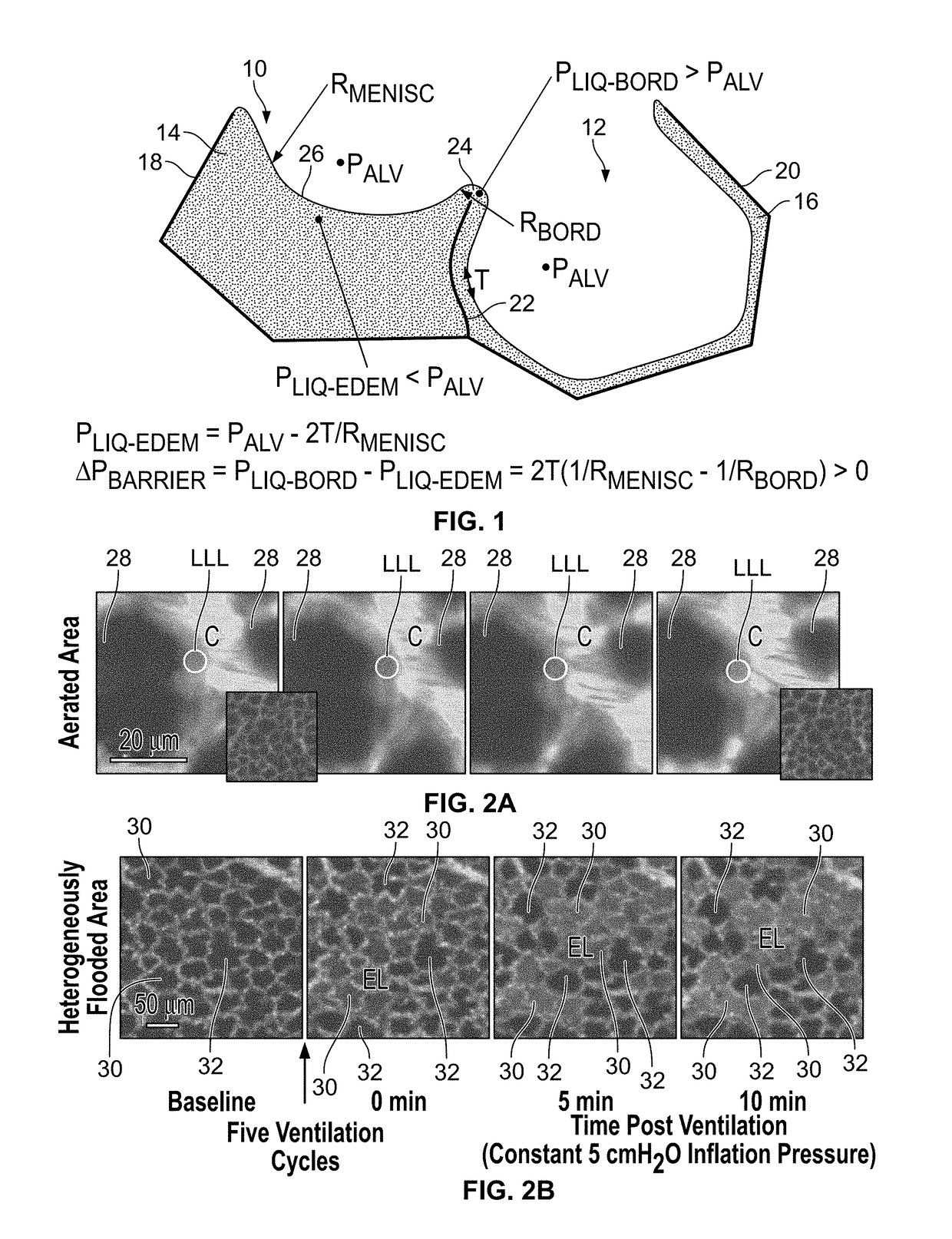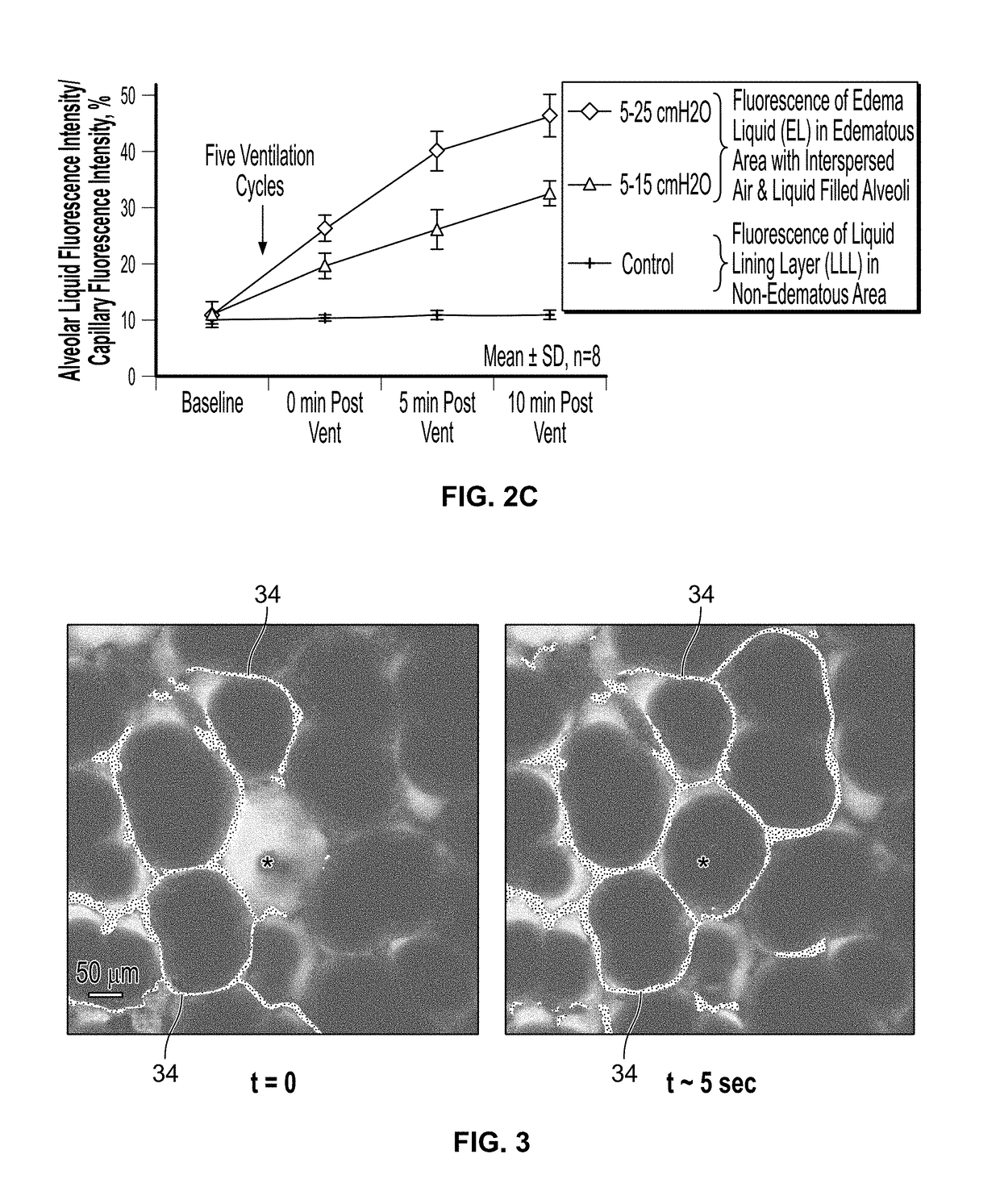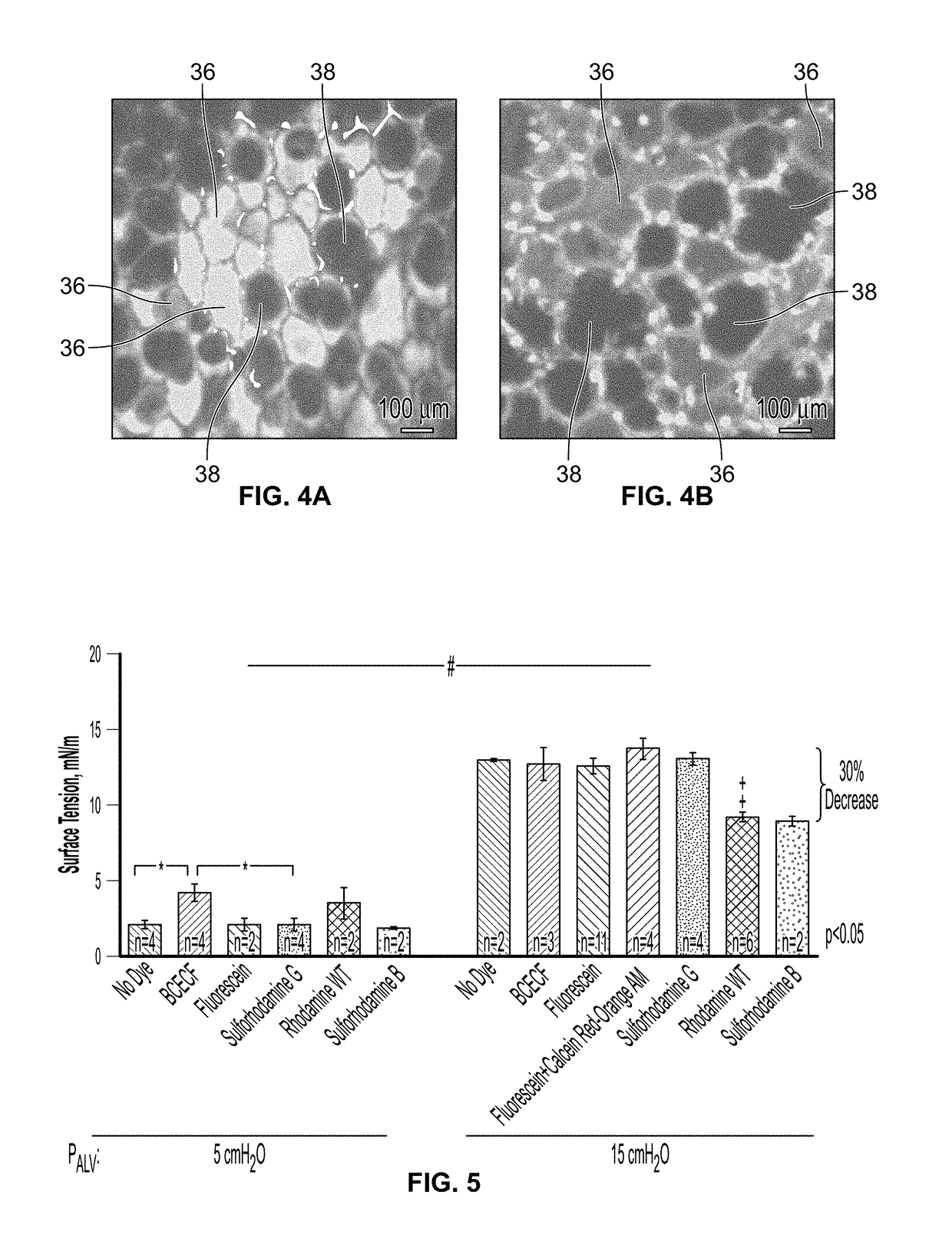Use of rhodamine dyes to reduce alveolar surface tension
a technology of alveolar surface tension and rhodamine, which is applied in the direction of biocide, respirator, peptide/protein ingredients, etc., can solve the problems of reduced lung compliance, difficult gas exchange, and difficulty in breathing, so as to promote equitable edema liquid redistribution and lessen the effect of ventilation-induced over-distension injury
- Summary
- Abstract
- Description
- Claims
- Application Information
AI Technical Summary
Benefits of technology
Problems solved by technology
Method used
Image
Examples
Embodiment Construction
[0054]FIG. 1 is a schematic drawing of regional liquid-phase pressures in an edematous (i.e., flooded) alveolus 10 adjacent to an aerated alveolus 12, according to a novel analysis of the mechanics of alveolar edema by the inventor of the present invention. The shaded areas 14, 16 represent liquid. The dark lines represent alveolar wall 18, 20, 22, where alveolar wall 22 is also a septum 22 between the edematous alveolus 10 and the aerated alveolus 12. As the liquid lining layer is continuous between alveoli, such as alveoli 10, 12, the edema liquid 14 of the edematous alveolus 10 is continuous with the liquid lining layer 16 of the aerated alveolus 12. By the Laplace relation, PALV>PLIQ•EDEM, where PALV is alveolar air pressure and PLIQ•EDEM is liquid pressure in the edematous alveolus, and the difference between the two pressures is proportional to surface tension T. Thus, pressure is greater in the aerated alveolus 12, where air pressure is the same PALV as in the edematous alveo...
PUM
| Property | Measurement | Unit |
|---|---|---|
| frequency | aaaaa | aaaaa |
| frequency | aaaaa | aaaaa |
| frequency | aaaaa | aaaaa |
Abstract
Description
Claims
Application Information
 Login to View More
Login to View More - R&D
- Intellectual Property
- Life Sciences
- Materials
- Tech Scout
- Unparalleled Data Quality
- Higher Quality Content
- 60% Fewer Hallucinations
Browse by: Latest US Patents, China's latest patents, Technical Efficacy Thesaurus, Application Domain, Technology Topic, Popular Technical Reports.
© 2025 PatSnap. All rights reserved.Legal|Privacy policy|Modern Slavery Act Transparency Statement|Sitemap|About US| Contact US: help@patsnap.com



